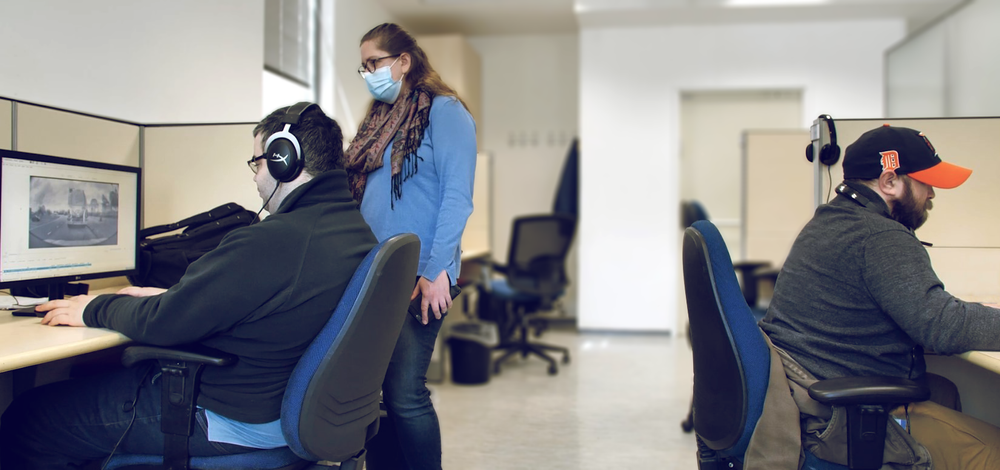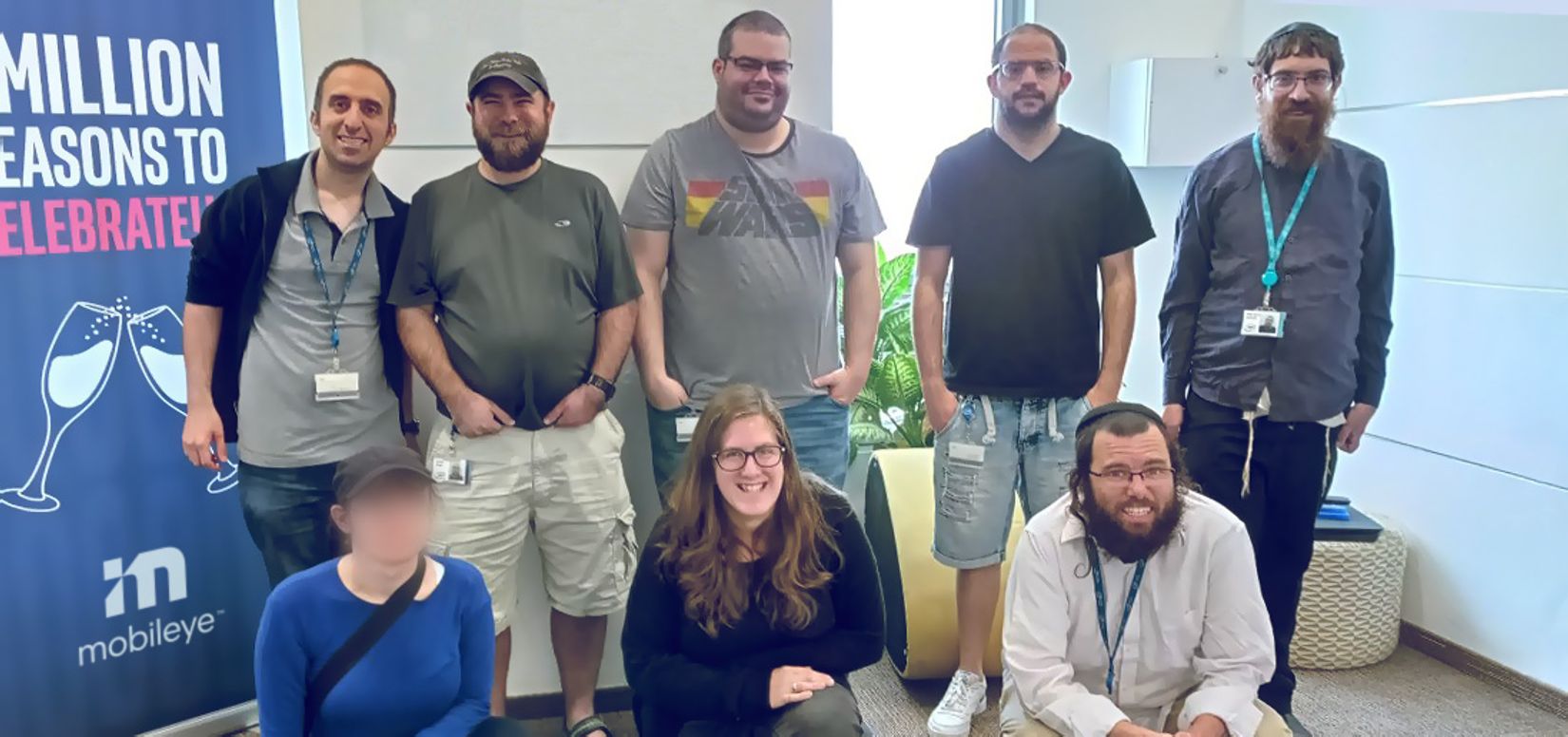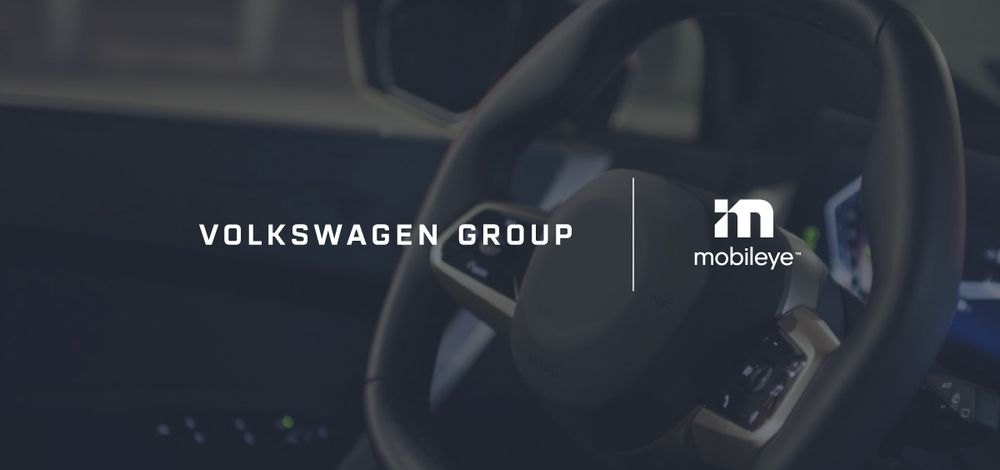blog
|
December 01, 2022
International Day of Persons with Disabilities: the Perfect People for the Job
A team of employees on the autism spectrum make a significant impact at Mobileye. Today we’re proud to showcase their ongoing contribution.

Mobileye's Perfects data-labeling team includes a dozen employees on the autism spectrum who help to hone our computer-vision algorithms.
“My work saves lives from car and road collisions all over the world. Mobileye has now become an innovative and groundbreaking safe-driving company globally, and I consider it the greatest blessing and honor to know I am saving lives.”
These words could have been spoken by any of the 3,000 people who work at Mobileye. But they hold a certain special significance coming from Jonathan Trauner.
Jonathan is one of a dozen employees at Mobileye on the autism spectrum. Their work is invaluable in “perfecting” our algorithms and in pursuing our ultimate goal of saving lives lost to automobile accidents. To mark this International Day of Persons with Disabilities, we’re proud to showcase the contribution made by these valued employees.
Meaningful Contribution
For more than five years now, Mobileye has been collaborating with SHEKEL, an Israeli non-profit organization that works towards the inclusion of people with disabilities in the community. Among SHEKEL’s goals is to secure employment for those it represents and thereby empower them to make a meaningful and positive impact on the world around them, despite their physical and/or cognitive differences – or sometimes, as we’ve found, even turning those disabilities into advantages.
Thanks to our collaboration with SHEKEL, individuals like Jonathan on the autism spectrum play an instrumental role as part of our “Perfects” team, where they’re responsible for labeling and classifying the data from video clips on which our algorithms are trained and tested.
It’s work that they’re not only able to do, but which leverages the strengths often found in high-functioning individuals on the spectrum. Our Perfects team members with autism spectrum disorder (ASD) have proven themselves particularly well-suited to analyzing videos frame by frame, paying close attention to often minute details, following set rules and procedures, and doing it all consistently and reliably.

“‘Cleaning’ data is priceless to Mobileye,” notes Perfects team operations manager Avi Hershkovitz. “It’s what makes the difference between accuracy of, say, 99.001% and 99.01% , for example.” That may not seem like a significant difference, but even a fraction of a percent can be consequential when you’re dealing with safety-critical technology like driver-assistance and self-driving systems.
Why Diversify?
The reasons for diversifying the workforce to include individuals with disabilities extend far beyond charity or corporate social responsibility.
“Inclusion, when done right, is beneficial financially for the company by identifying and matching company needs to employee abilities,” explains Mollie Goldstein, who managed the program for SHEKEL before coming onboard full-time at Mobileye. “A much wider range of tasks can be accomplished when employees bring different strengths and abilities.”
The participation of employees with disabilities in the workplace can also raise morale and motivation – not only for those employees themselves, but also “for neurotypical employees who see the hurdles people have overcome to be given equal opportunities, and see how important their job is to them,” Goldstein points out. “Examples of successful people with disabilities just go to show the brilliant minds we may miss if we overlook this segment of the population.”
Beyond Employment
Aside from financial compensation, benefits, and technical training, the program also helps these employees develop the social and interpersonal skills they need to operate and succeed as productive members of the workforce. They learn, for example, how to make themselves presentable for the workplace environment, the importance of showing up to work on time, and to notify their managers of any absences in advance. They're also given opportunities to socialize in a welcoming environment when they feel comfortable doing so.
“Before I never really did anything real. And now I feel like I finally am doing something with my life,” says Eli Schreiber, one of our Perfects QA technicians. “Thankfully we’ve learned, which is a pretty good skill I think, that we can now have the discipline and the capacity to work without having someone standing over us.”
A Perfect Match
“There are so many problems in the world and there's not much we can do,” says Pini Segal, Mobileye’s veteran VP of Payroll and an instrumental early internal champion of the SHEKEL collaboration. “But when we have the opportunity to do something good and to do it right, there's nothing better than that. We simply love this project.”
With the SHEKEL program, we’re able not only to integrate individuals of differing abilities into our company, but to recognize their unique capabilities and the significant contribution they can make towards our goal of making roads safer.
Share article
Press Contacts
Contact our PR team








